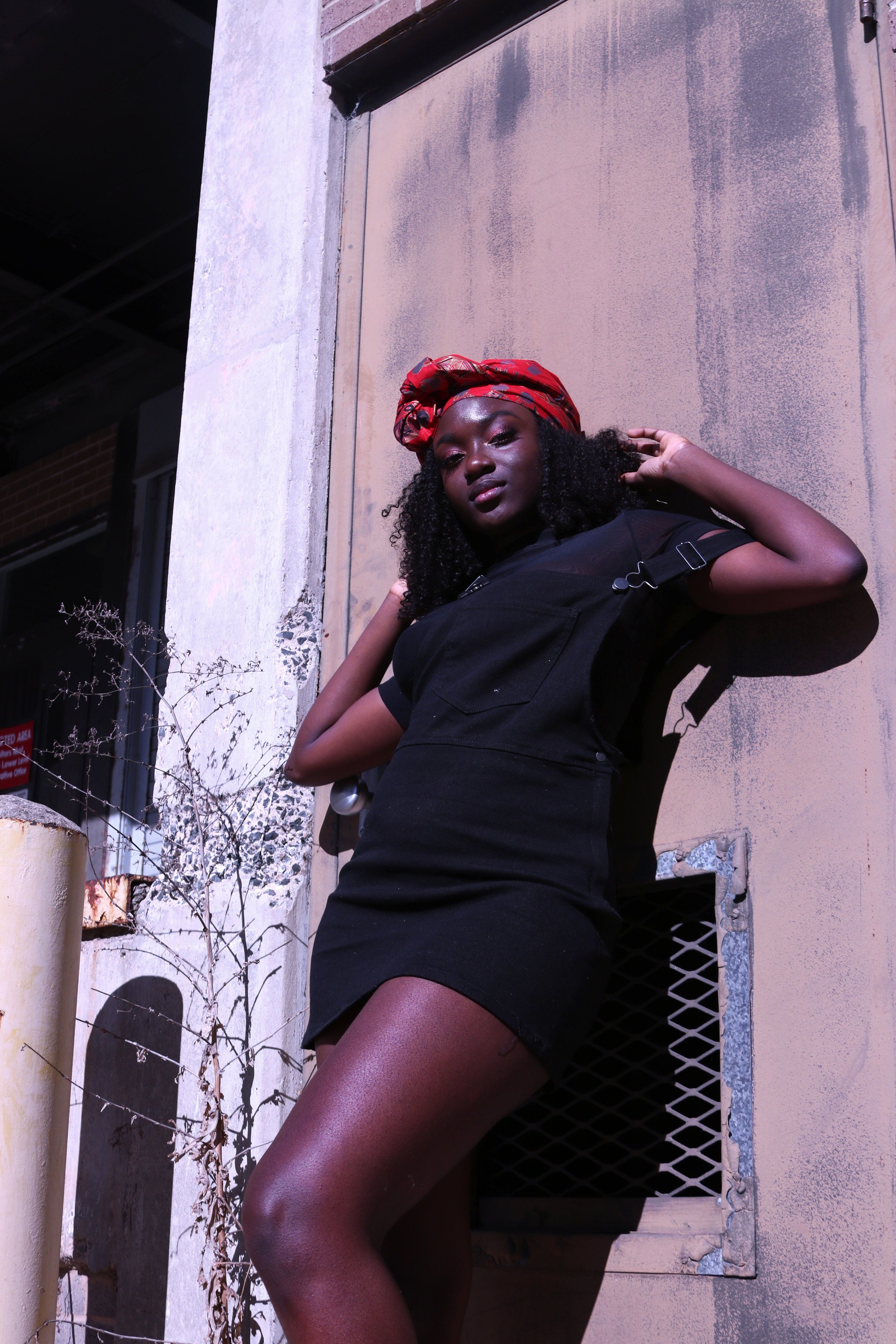Everyday AfroPunk

The AfroPunk movement stems from the documentary Afro-Punk (2003), which was directed by James Spooner and illuminates on a subculture of African Americans immersed in the alternative punk scene. These alternative scenes are typically associated with white identity so the documentary fulfils a significant social role in challenging such stereotypes.
The Afro-Punk documentary also ignited a revolution, which led to the establishment of the AfroPunk music festival in 2005. Held annually, the festival attracts thousands to its location in Brooklyn’s Fort Green neighborhood - a place that celebrates multiculturalism and uniqueness in all its glory. Music lovers also gather to appreciate their favorite alternative artists while expressing their eclectic and individual sense of style.
The looks in our photoshoot are a subtle take on the movement’s aesthetic sensibilities as they showcase everyday looks that incorporate AfroPunk style. For instance, we combined a traditional head wrap with a simple denim look. AfroPunk style consists of extraordinary, one-of-a-kind looks, which explains the presence of thrifted items. A perfect example of this is the black windbreaker with striking colors and patterns – a uniquely thrifted item. We played with Afrocentric patterns, loud accessories and complex textures to create eye-catching looks.
One of our models, Naomi Lilly, speaks on how her personal style exemplifies AfroPunk, "I've always enjoyed trying pieces that people would find out-of-the-ordinary or over-the-top. I like to incorporate these pieces into my style and turn them from something questionable into something fashionable. My go-to style is normally a combination of eighties and nineties pieces. I also love vintage styles and bright colors. It's fun transforming everyday and finding new ways to stand out!" This idea of “standing out” is what AfroPunk is all about. From the music to the fashion, it is a movement that champions individuality, experimentation and quirkiness.
Words by Yasmin Maktal
Photography by Hannah Yehudah
Creative direction by Hannah Yehudah and Yasmin Maktal
Models: Margaret Darko, Setonji Agosa, and Naomi Lilly








